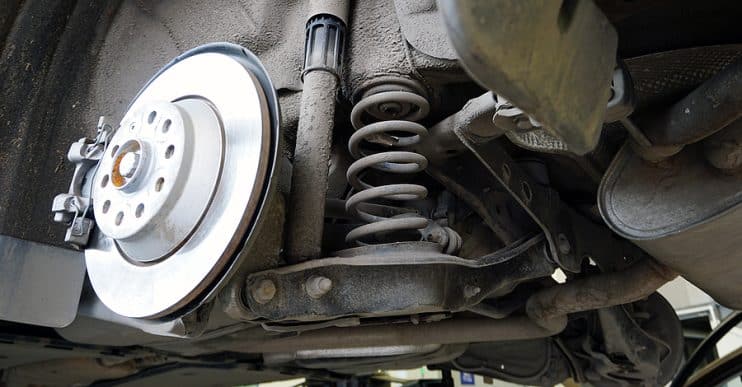
The Chrysler Voyager is a popular vehicle that’s great on the road and offers seven seats of passenger space with an ample boot at the rear. It’s not going to win any prizes for good looks, but when it comes to carrying power it’s up there with some of the best.
First introduced by Chrysler in 1984, this model became a stalwart of the range in the US before it was released in the EU in 1988 and has undergone a slight rebrand in recent years as the Grand Voyager. It is a well-engineered car that makes a great second-hand purchase. However, you should be aware of several known faults with the car. If any issues do arise, genuine Chrysler parts are widely available and relatively inexpensive to replace.
So what are the common faults with the Chrysler Voyager?
Brakes
When you put your foot on the brakes during the test drive, if you can hear a hissing noise then you are probably looking at an issue that occurs with the Chrysler Voyager’s brake servo. It isn’t the most dangerous problem, but you will need to replace the part to get rid of the noise.
Suspension Bushes
When you’re taking your potential purchase out on the open road try to drive over some rougher roads as this will give you a good indication as to the condition of the suspension bushes. These are reportedly one of the first parts to fail in the car. Confirm your suspicions by giving the car a quick push on the bonnet and checking that the car returns to its position in a single bounce.
Automatic Gearbox
Looking at buying a diesel automatic model? Take the car for a test drive and push it up to high speeds quickly. If the automatic gearbox baulks and fails to engage properly then you have an issue with transmission. This is one of the most-costly known faults to repair in this Chrysler minivan.

Shock Absorber Failure
Ride quality is an important factor, and there is a known problem with the shock absorbers on the Chrysler Voyager. Fortunately, there is a very quick check that you can perform whilst the vehicle is stationary. Simply look under the wheel arch at the springs. If there are any signs of moisture on the parts this is a very good indicator that the shocks are leaking and not up to standard.
Electric Door Issues
There is a widely-reported fault with the electronically operated latch on this Chrysler minivan’s electric sliding door. Easy enough to diagnose – if the door works using the manual controls, but not the automatic switch – then you know the latch has failed. There have also been reported issues with the motor not working.
Seatbelts
Check the service history of any Chrysler Voyager you’re thinking of buying, especially if it’s one of the earliest models, as there was a known problem with the rear seatbelt fixing, which caused a widespread recall. You’ll want to see evidence that the work was completed.
Power Steering
If the Voyager you are looking at purchasing was manufactured in the early 2000s then it could have been the subject of a recall due to a serious fault with the power steering that could cause the vehicle to catch fire. Again, have a good look at the Chrysler service history to check the work was properly completed.
Reports in the online review communities seem to give an overwhelmingly positive response to the Voyager’s capabilities as a used car. Owners believe their vehicles to be of a high quality with a robust character that has the strength to last for years, carrying the larger family unit. These qualities make it a great buy for a family looking to maximise space and roadworthiness for their money.
For affordable replacement engines, gearboxes and more, check out our new and used Chrysler Voyager parts page.

.png)